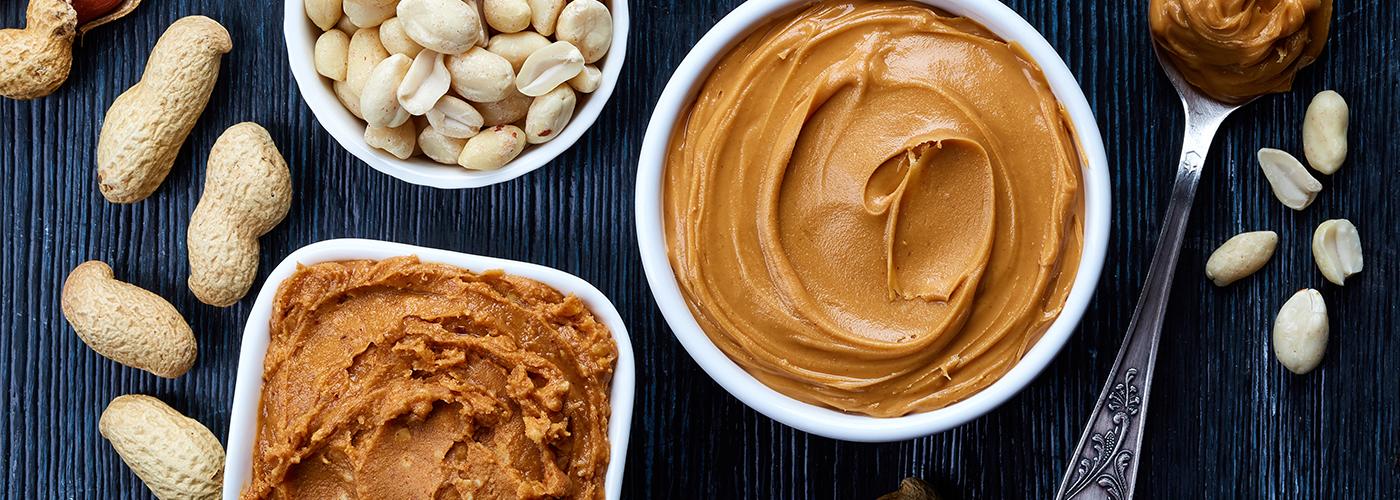Peanut Nutrition Facts

Iconic peanuts aren't just a pantry staple; they’re a compact source of protein, healthy fats, vitamins, and minerals that support a well-rounded, nutritious diet. Harvested and enjoyed globally, these versatile legumes appear in everything from main dishes and desserts to quick, satisfying snacks. The nutritional value of peanuts certifies them as a true superfood, while their rich, naturally roasted flavor makes them irresistible, giving consumers the best of both worlds. Let’s take a closer look at these peanut nutrition facts and discover why they’re a smart choice for anyone seeking a protein-packed, vitamin-rich food.

Peanuts Power You with Protein
Are peanuts nutritious? Absolutely, especially when it comes to protein. Protein is a vital macronutrient that supports every cell in the body and plays a key role in muscle development, immune function, and tissue repair. It’s especially important during exercise and recovery, including strength and weight training. Plant-based protein sources like peanuts are not only satisfying but also help reduce the risk of cardiovascular disease.
The human body needs a steady intake of protein to maintain strength and energy, and just one ounce of salted in-shell peanuts (shells removed) contains 7 grams—that's nearly 15 percent of the recommended daily value.
Healthy Fats in Peanuts
Not all fats are created equal. Peanuts are naturally rich in healthy fats, including monounsaturated and polyunsaturated, which provide energy and support proper brain and nerve function. These fats help maintain healthy cell growth and can be found in other wholesome foods like seeds, oils, and some animal products. Peanuts also contain omega-3 and omega-6 fatty acids, two types of beneficial fats that support heart health, regulate hormones, and improve the body’s ability to absorb fat-soluble vitamins such as A, D, E, and K.
Hampton Farms shelled Virginia peanuts offer about 15 grams of fat per one-ounce serving, with approximately 85 percent coming from these healthy fats.
Complex Carbs in Peanuts
As part of balanced peanut nutrition, complex carbohydrates play a key role in fueling the body. These carbs are digested slowly, releasing sugar gradually into the bloodstream to support sustained energy and metabolic function. Compared to simple carbohydrates like those found in white rice, chips, or sugary snacks, complex carbs help keep you feeling full for longer.
A one-ounce serving of unsalted in-shell peanuts (with shells removed) contains 5 grams of complex carbs, most of which come from dietary fiber. This fiber supports healthy digestion and gives peanuts a low glycemic index (GI), meaning they break down slowly without causing blood sugar spikes.
Do Peanuts Have Vitamins?
If you’re wondering do peanuts have vitamins, the answer is yes. They offer a wide assortment, including:
- Niacin
- Folate
- Pantothenic acid
- Thiamin
- Riboflavin
- Choline
- Vitamin B6
- Vitamin E
These vitamins contribute to heart health, help convert carbohydrates into energy, and support the nervous system. Peanuts are also a rich source of biotin, a B vitamin especially important for pregnant women. A healthy diet should include whole foods that offer a variety of vitamins working in harmony with other nutrients to support key bodily functions.
Essential Minerals in Peanuts
A diet rich in minerals helps strengthen bones and teeth, regulate fluid balance inside and outside of cells, and convert food into usable energy. Among their many nutritional benefits, peanuts are excellent sources of key minerals such as:
- Magnesium
- Phosphorus
- Potassium
- Zinc
- Copper
- Manganese
- Selenium
These minerals contribute to lower blood pressure, improved heart health, enhanced metabolism, and stronger bones and muscles. Peanuts are also high in iron, which supports the immune system, helps cells produce energy, and carries oxygen throughout the body, making them a smart choice for maintaining overall vitality.
Peanuts to Support a Healthy Lifestyle
Peanuts offer a wide range of health benefits. In addition to their impressive nutrient profile, they’re naturally cholesterol free and packed with antioxidants. Whether you're aiming to lose weight, build muscle, or simply maintain a strong and healthy body, peanuts are an excellent source of plant-based nutrition. While they do contain a relatively high number of calories per serving, their rich composition of essential nutrients helps you feel full, energized, and nutritionally satisfied.
Peanut Health in Comparison to Other Nuts
Many nuts are great additions to a healthy diet. Whether you choose almonds, pistachios, pecans, or cashews, each offers its own unique nutritional perks. But when it comes to protein content, peanuts stand out: they contain more protein per serving than any other nut, and they’re also among the lowest in calories and fat. That makes peanuts one of the most nutritious and satisfying snacks around. When hunger strikes, grab a handful of peanuts or a spoonful of peanut butter and power through your day.
With their hearty mix of protein, healthy fats, and essential nutrients, peanuts fit into almost any lifestyle or occasion. At Hampton Farms, we’ve been delivering fresh, high-quality peanuts from seed to shelf since 1917. As a family-owned and operated company, we’re proud to offer nut-based snacks made with care, honesty, and the dedication of American farmers.
Note: This content is for informational purposes only and not meant to serve as dietary advice. Always consult a doctor with questions.


Leave a comment